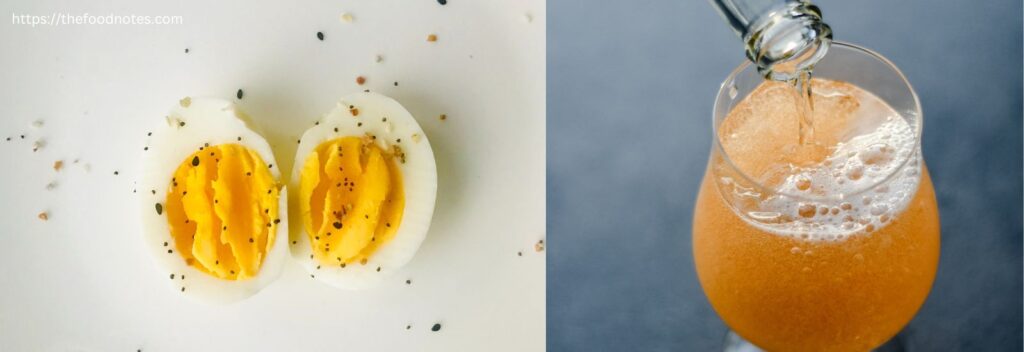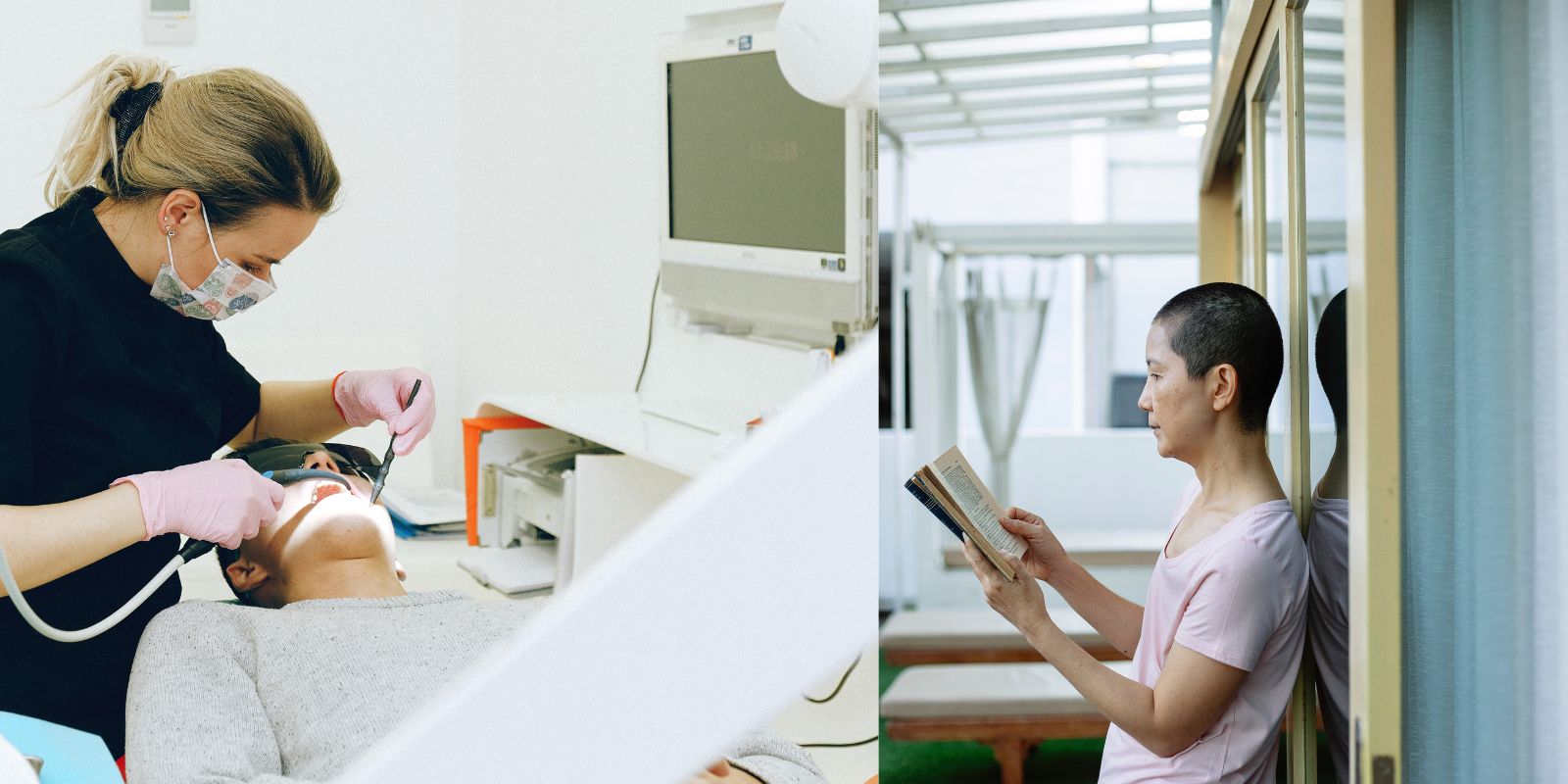After wisdom teeth removal, you might feel like you’ve just been in a battle. Your mouth is sore, swollen, and tender, and you might find it difficult to eat or speak. However, there’s good news: with proper care and attention, your mouth will heal quickly, and you’ll be back to your old self in no time.
One of the most important things to consider after wisdom teeth removal is your diet. What you eat during the recovery period can have a significant impact on how quickly you heal and how comfortable you feel. Although it might be tempting to indulge in your favorite foods, it’s essential to stick to a soft and easy-to-eat diet for the first few days. Here we will discuss about wisdom teeth removal recovery.
Table of Contents
What to Eat After Wisdom Teeth Removal

After wisdom teeth removal, it’s essential to be mindful of what you eat to promote healing and avoid any complications. Here are some tips on what to eat after wisdom teeth removal:
- Soft Foods: During the first few days after surgery, stick to soft foods that are easy to chew and swallow. Examples include mashed potatoes, yogurt, smoothies, scrambled eggs, and oatmeal. sourse: healthline
- Liquids: Drink plenty of water and other liquids like juices, smoothies, and broths to stay hydrated and promote healing.
- Cold Foods: Cold foods like ice cream, frozen yogurt, and popsicles can help reduce swelling and soothe sore gums.
- Protein: Incorporate protein-rich foods like chicken, fish, tofu, and beans into your diet to promote healing and maintain energy levels.
- Vitamin C: Vitamin C is essential for healing and boosting your immune system. Foods like oranges, strawberries, and broccoli are excellent sources of vitamin C.
- Avoid Hard or Crunchy Foods: Hard or crunchy foods like chips, nuts, and raw vegetables can damage the surgical sites and delay healing. Avoid these foods for at least a week after surgery.
- Avoid Spicy or Acidic Foods: Spicy or acidic foods like hot sauce, citrus fruits, and vinegar can irritate the surgical sites and cause discomfort. Avoid these foods for at least a week after surgery.
It’s important to listen to your body and avoid any foods that cause pain or discomfort. Stick to soft, easy-to-eat foods for the first few days after surgery and slowly reintroduce solid foods as you feel more comfortable. Follow your dentist’s instructions for recovery, and before you know it, you’ll be back to enjoying all your favorite foods.
The Best (and Worst) Foods to Eat After Wisdom Teeth Removal
Wisdom teeth removal is a common procedure that can cause discomfort and swelling for a few days. One of the best ways to ensure a smooth recovery is by following a proper diet. Here are the best (and worst) foods to eat after wisdom teeth removal.
The Best Foods:
- Smoothies: Smoothies are a great way to get all the necessary nutrients while also staying hydrated. Blend together some fruits and veggies with some protein powder, and you have a nutrient-rich drink.
- Mashed Potatoes: Mashed potatoes are a soft and easy-to-eat food that can also provide energy and nutrition.
- Scrambled Eggs: Scrambled eggs are a great source of protein, and the soft texture makes them an ideal food for post-surgery recovery.
- Broth: Broth is rich in protein, which is important for tissue repair, and also helps to keep you hydrated.
- Applesauce: Applesauce is a great option for a sweet and easy-to-eat snack that can also provide some vitamin C.
The Worst Foods:
- Chips: Chips are hard and crunchy, which can irritate the surgical sites and cause discomfort.
- Nuts: Nuts are also hard and crunchy, and can cause damage to the surgical sites.
- Spicy Foods: Spicy foods can irritate the surgical sites and cause pain and discomfort.
- Carbonated Beverages: Carbonated beverages can cause discomfort and bloating, which can slow down the healing process.
- Solid Foods: Solid foods that require a lot of chewing can be difficult to eat and can cause discomfort. Stick to soft, easy-to-eat foods for the first few days after surgery.
By following these guidelines, you can help ensure a speedy recovery after your wisdom teeth removal. Remember to follow your dentist’s instructions, take your medications as prescribed, and get plenty of rest to promote healing.
How Much Water Should You Drink Per Day?

Drinking enough water is always important, but it becomes even more important after wisdom teeth removal. Staying hydrated helps to promote healing and can also reduce discomfort and swelling. So, how much water should you be drinking per day?
While the amount of water you need can vary depending on your age, weight, and activity level, a general guideline is to drink at least 8-10 glasses of water per day. This equates to about 2-3 liters of water per day.
After wisdom teeth removal, you may need to increase your water intake to help keep your body hydrated and promote healing. Be sure to sip water throughout the day, rather than chugging large amounts at once. Drinking through a straw should be avoided during the first few days, as the suction can dislodge the blood clot and delay healing.
It’s also important to note that you should avoid drinking sugary or carbonated drinks, as they can cause discomfort and slow down the healing process. Stick to water or other hydrating drinks like herbal tea or coconut water.
In summary, drinking enough water is crucial for your overall health and well-being, and becomes even more important after wisdom teeth removal. Aim to drink at least 8-10 glasses of water per day and stay away from sugary or carbonated drinks.
Helpful Routine after wisdom teeth removal recovery
After wisdom teeth removal, it’s important to follow some helpful routines to ensure a smooth recovery. These routines can vary in length depending on the individual and the extent of the extraction. Here are some general guidelines for helpful routines during the recovery period:
For 3 to 5 Days:
Rest as much as possible and avoid strenuous physical activity.
Apply ice packs to the cheeks to reduce swelling.
Take any prescribed pain medication as directed by your dentist or oral surgeon.
Rinse your mouth gently with saltwater several times a day to promote healing and reduce the risk of infection.
Stick to a soft or liquid diet, avoiding foods that can cause irritation or discomfort.
For 1 Week or More:
Continue to rest and avoid strenuous activity.
Gradually reintroduce solid foods back into your diet as recommended by your dentist or oral surgeon.
Brush your teeth gently, being careful to avoid the extraction site.
Continue rinsing with saltwater as directed.
Attend any follow-up appointments with your dentist or oral surgeon.
For 2 to 4 Weeks:
Avoid smoking or using tobacco products, as they can slow down the healing process and increase the risk of complications.
Continue to brush your teeth gently, being careful around the extraction site.
Avoid eating hard or crunchy foods that can irritate the extraction site.
Continue attending any follow-up appointments with your dentist or oral surgeon.
Listen to your body and take it easy if you experience any discomfort or pain.
Following these helpful routines can help ensure a smooth and successful recovery after wisdom teeth removal. Be sure to consult with your dentist or oral surgeon for specific instructions based on your individual needs and circumstances.
After wisdom teeth removal, there are some important do’s and don’ts to keep in mind to ensure proper healing and minimize the risk of complications. Here are some things to remember:
DO’S:
Rest and take it easy for the first few days after surgery.
Apply ice packs to the cheeks to reduce swelling and discomfort.
Follow your dentist or oral surgeon’s instructions for pain management.
Rinse your mouth gently with saltwater to promote healing and reduce the risk of infection.
Gradually reintroduce solid foods back into your diet as recommended.
Stay hydrated by drinking plenty of water.
DONT’S:
Avoid smoking or using tobacco products, as they can slow down the healing process and increase the risk of complications.
Don’t drink alcohol for at least 24 hours after surgery or while taking prescribed pain medications.
Don’t use a straw for at least a week after surgery, as the sucking action can dislodge blood clots and delay healing.
Avoid hard, crunchy, or sticky foods that can irritate the extraction site.
Don’t rinse your mouth too vigorously, as this can also dislodge blood clots and delay healing.
Reminders:
Make sure to attend any follow-up appointments with your dentist or oral surgeon.
If you experience any excessive bleeding, severe pain, or signs of infection (such as fever, swelling, or pus), contact your dentist or oral surgeon immediately.
Take it easy and listen to your body. Don’t push yourself too hard or engage in strenuous physical activity until you feel ready.
If you have any concerns or questions during the recovery period, don’t hesitate to reach out to your dentist or oral surgeon for guidance.
Conclusion:
In conclusion, after wisdom teeth removal, it’s important to take care of yourself and follow a proper post-operative routine to ensure a smooth and speedy recovery. This includes eating soft foods, drinking plenty of water, avoiding tobacco and alcohol, and following your dentist or oral surgeon’s instructions for pain management and oral care. By taking these steps and being mindful of what you eat and how you care for your mouth, you can minimize the risk of complications and get back to your normal routine as soon as possible. Remember to be patient with yourself and reach out to your dental professional if you have any questions or concerns during the recovery period.
The Food Notes is a food and cooking blog dedicated to providing delicious recipes, cooking tips, and food-related news. For more food-related content, visit our homepage at The Food Notes. Happy cooking
F.A.Q’s
Q 1: When can I eat solid food after wisdom teeth removal?
Answer: It is generally recommended to wait at least 3-4 days before attempting to eat solid food after wisdom teeth removal. This allows time for the extraction site to heal and reduces the risk of complications.
Q 2: When can I eat spicy food after wisdom teeth removal?
Answer: It is best to avoid spicy foods for at least the first few days after wisdom teeth removal, as they can irritate the extraction site and cause discomfort.
Q 3: What food can I eat after wisdom teeth removal?
Answer: Soft, cold, and lukewarm foods are generally recommended after wisdom teeth removal, such as soup, smoothies, yogurt, mashed potatoes, scrambled eggs, and ice cream.
Q 4: What food to eat after wisdom teeth removal?
Answer: Similar to question 3, soft, cold, and lukewarm foods are recommended after wisdom teeth removal, including smoothies, mashed potatoes, pudding, applesauce, and Jell-O.
Q 5: How long after wisdom teeth removal can I eat?
Answer: It is generally recommended to wait at least an hour after the procedure before attempting to eat or drink anything. After that, you can slowly introduce soft foods and gradually move on to more solid foods as you feel comfortable.
Q 6: How long after wisdom teeth removal can I eat normally?
Answer: It can take up to 2 weeks for the extraction site to fully heal, so it is important to continue eating soft foods for at least the first few days and gradually introduce more solid foods over time.
Q 7: How long after wisdom teeth removal can I eat a burger?
Answer: It is generally recommended to wait at least 3-4 days before attempting to eat solid foods like burgers after wisdom teeth removal.
Q 8: How long after wisdom teeth removal can I eat solid food?
Answer: It is generally recommended to wait at least 3-4 days before attempting to eat solid food after wisdom teeth removal, to allow time for the extraction site to heal.
Q 9: How long after wisdom teeth removal can I eat chips?
Answer: It is best to wait at least a week or two after wisdom teeth removal before attempting to eat hard or crunchy foods like chips, to avoid dislodging the blood clot or irritating the extraction site.
Q 10: How long should you not eat before wisdom tooth removal?
Answer: Your dentist or oral surgeon may provide specific instructions, but generally, it is recommended to avoid eating or drinking anything for at least 6 hours before the procedure.
Q 11: What foods should you eat after wisdom teeth removal?
Answer: Soft, cold, and lukewarm foods are generally recommended after wisdom teeth removal, such as soups, smoothies, yogurt, mashed potatoes, scrambled eggs, and ice cream.
Q 12: How long should you wait before eating?
Answer: It is generally recommended to wait at least an hour after the procedure before attempting to eat or drink anything.
Q 13: When can you reintroduce solid foods?
Answer: It is generally recommended to wait at least 3-4 days before attempting to eat solid food after wisdom teeth removal, and gradually introduce more solid foods over time as you feel comfortable.
Q 14: What foods and drinks should you avoid after wisdom teeth removal?
Answer: It is best to avoid hard, crunchy, sticky, and spicy foods, as well as carbonated and alcoholic beverages, for at least the first few days after wisdom teeth removal.
Q 15: What happens if you eat the wrong foods after wisdom teeth removal?
Answer: Eating the wrong foods after wisdom teeth removal can irritate the extraction site, dislodge the blood clot, and cause pain, swelling, and infection.
- Calories in scallion pancakes - March 10, 2023
- Hotcakes vs Pancakes | What’s the Difference? - March 9, 2023
- Kimchi Pancake Calories and Pancake Nutrition Facts - March 8, 2023

